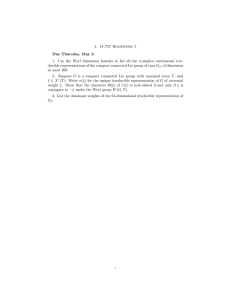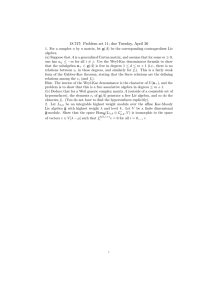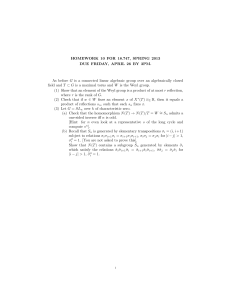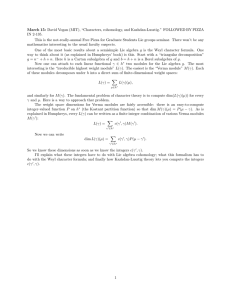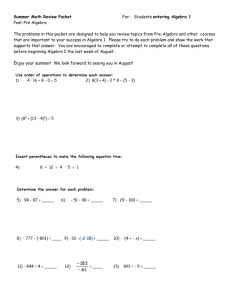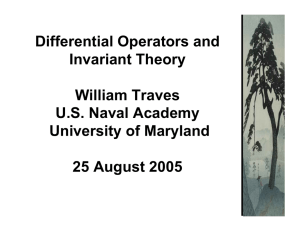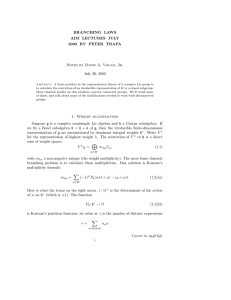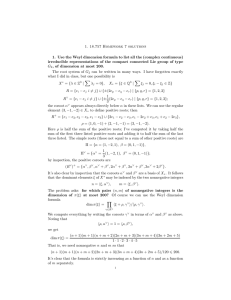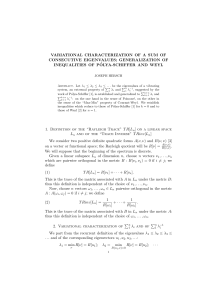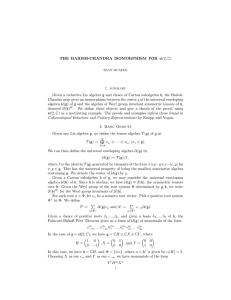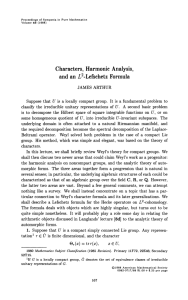1. Homework 9 on R
advertisement
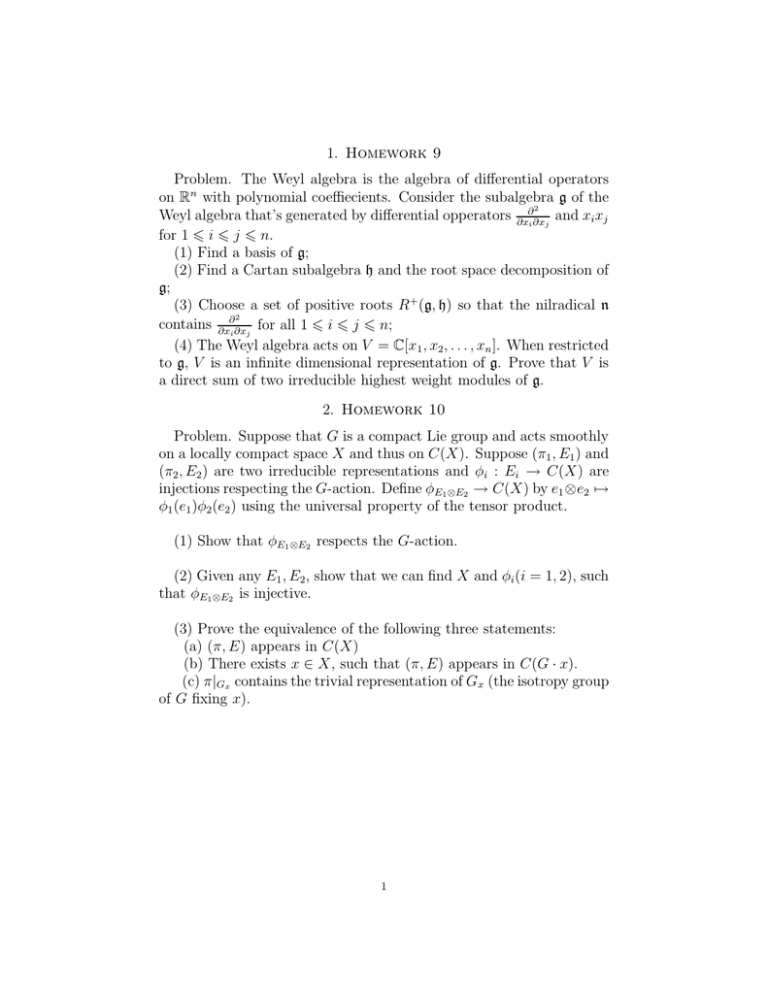
1. Homework 9 Problem. The Weyl algebra is the algebra of differential operators on Rn with polynomial coeffiecients. Consider the subalgebra g of the 2 Weyl algebra that’s generated by differential opperators ∂x∂i ∂xj and xi xj for 1 6 i 6 j 6 n. (1) Find a basis of g; (2) Find a Cartan subalgebra h and the root space decomposition of g; (3) Choose a set of positive roots R+ (g, h) so that the nilradical n 2 contains ∂x∂i ∂xj for all 1 6 i 6 j 6 n; (4) The Weyl algebra acts on V = C[x1 , x2 , . . . , xn ]. When restricted to g, V is an infinite dimensional representation of g. Prove that V is a direct sum of two irreducible highest weight modules of g. 2. Homework 10 Problem. Suppose that G is a compact Lie group and acts smoothly on a locally compact space X and thus on C(X). Suppose (π1 , E1 ) and (π2 , E2 ) are two irreducible representations and φi : Ei → C(X) are injections respecting the G-action. Define φE1 ⊗E2 → C(X) by e1 ⊗e2 7→ φ1 (e1 )φ2 (e2 ) using the universal property of the tensor product. (1) Show that φE1 ⊗E2 respects the G-action. (2) Given any E1 , E2 , show that we can find X and φi (i = 1, 2), such that φE1 ⊗E2 is injective. (3) Prove the equivalence of the following three statements: (a) (π, E) appears in C(X) (b) There exists x ∈ X, such that (π, E) appears in C(G · x). (c) π|Gx contains the trivial representation of Gx (the isotropy group of G fixing x). 1
